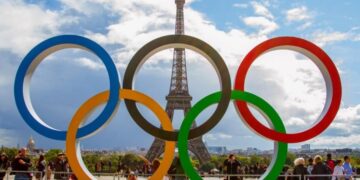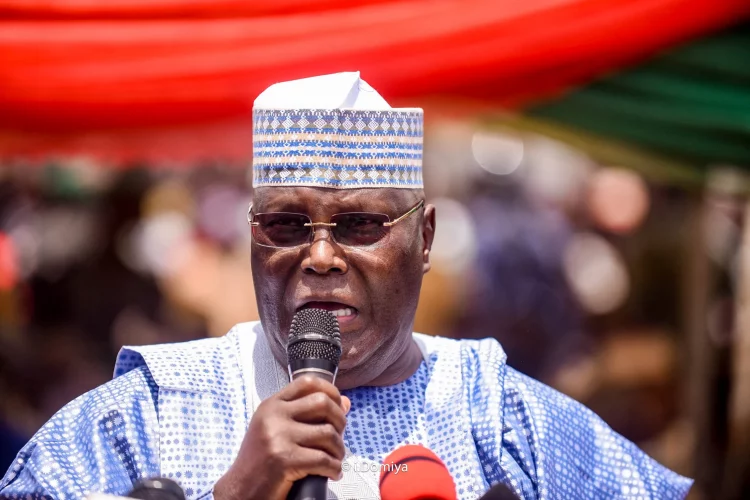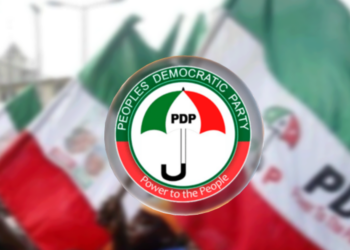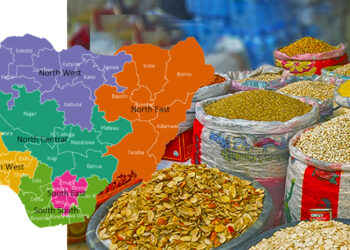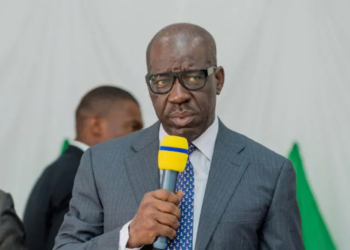Barely days after the People’s Democratic Party (PDP) nominated the former Vice President in the Obasanjo administration, Alhaji Atiku Abubakar, as its presidential flag bearer in the forthcoming 2023 general election, moves are on, already, to disqualify the serial contender from presenting himself to the Nigerian electorate for the highest office in the land.
The move was initiated by an Abuja-based lawyer, one John Mary Jideobi, who deposed in a suit filed at an Abuja High Court, that the former Vice President is not eligible to contest the 2023 presidential election.
He contended that Atiku is not constitutionally qualified to participate in the presidential contest because he is not a Nigerian citizen by birth as required under the Constitution. He further stated in one of the court documents that Atiku acquired his citizenship of Nigeria by virtue of the 1961 plebiscite which integrated some people of Northern Cameroon into Nigeria as new citizens of Nigeria.
A similar suit was earlier filed before a court by a group that describes itself as Egalitarian Mission for Africa (EMA). It was dismissed in February by Justice Inyang Ekwo on the grounds that the plaintiff lacked the requisite locus standi (the right to approach the court) on the issue.
We recall that historically, Alhaji Atiku Abubakar was born on 25 November 1946 in Jada, a village which was then under the administration of the British Cameroons – the territory later joined with the Federation of Nigeria in the 1961 British Cameroons referendum. And what is a referendum? It is a specific vote. Citizens who permanently reside in the territory where it will be held, or who have been there for a sufficiently long time, can take part in it. The results of the referendum do not require confirmation or special approval by any of the authorities. It has the highest legal force and is not subject to appeal. This definition speaks for itself.
However, it is pertinent to point out that Atiku’s father, Garba Abubakar was a Fulani trader and farmer, and his mother was Aisha Kande. He was named after his paternal grandfather, Atiku Abdulqadir, who hailed from Wurno, Sokoto State and migrated to Kojoli village at Jada, Adamawa State. His maternal grandfather, called Inuwa Dutse, migrated to Jada, Adamawa State from Dutse, Jigawa State.
We also note that there is an area in Adamawa state known as Sardauna Province which was part of Northern Cameroon but which became part of Nigeria as a result of that same referendum of 1961. Are we, therefore, to begin to contest the nationality of that whole area just for political gains?
This newspaper is by no means holding brief for Alhaji Atiku because he is more than capable of arguing his own case. Our contention is that there must be a limit to politics. And this is not peculiar to Nigeria. A trip to Zambia will reveal that soon after President Frederick Chiluba won the presidential election against the late Kenneth Kaunda in 1991, he started parodying the falsehood that Kaunda, the father of modern Zambia, a man who was at the forefront of that country’s struggle for independence from British rule and served as its first President from 1964 to 1991, was not a Zambian.
For most Nigerians conversant with Nigerian politics, this is not the first time Atiku Abubakar is vying for and occupying public office. His record speaks for itself. It is from this standpoint that we argue that an attempt to question his citizenship as a basis for his eligibility for the office of the president is, indeed, a wild goose chase because the issue was resolved when he vied for this same office in the Social Democratic Party (SDP) days. In this country, in 1999, he won an election to be Governor of Adamawa state before he was upgraded to the office of the Vice President in which he served for eight years. This is not the first time he is putting himself up for election as President and this issue of citizenship was not raised.
Instead of wasting valuable time, pursuing a non-issue which most Nigerians are not disposed to subscribe to, this newspaper is inviting Jideobi and others like him, to put Atiku on the spot about what his programmes and policies will be should he succeeds in getting elected.
Nigeria is literally on the brink of being consumed by insecurity. The economy is wobbling, inflation and unemployment rates are at an all-time high, consumer goods’ prices are spiraling out of control and energy crisis is becoming perennial. These are the issues that bother Nigerians presently and for which they demand answers from their political leaders, serving and prospective. Anyone who loves Nigeria and Nigerians should take Atiku up on these matters not where his ancestors came from.



